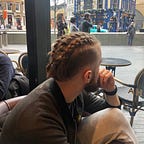26. Face masks really do work and why previously-infected people need to get vaccinated.
I have written previously about research showing that face masks do appear to work to prevent viruses from entering our bodies (see #5) and that they may be the most efficient tool in our fight against the pandemic (see #17.) New research, given more data, shows that indeed, masks can basically prevent infection and there are good explanations for some of the efficacy disparities we may observe.
Face masks effectively limit the probability of SARS-CoV-2 transmission — medium difficulty read. Y. Cheng et al. set out to understand and describe not if masks stop the virus from entering the body overall (which was answered before,) but whether wearing protective face coverings indeed prevents infection. They have conducted a thorough analysis, taking into account sizes and volumes of particles exhaled by people, and their aggregations in various circumstances. Together with previously understood knowledge on the efficacy of masks in stopping particles, the authors were able to show a convincing explanation on why even simple surgical masks do work. In short, most people live in environments with low viral abundance. If a simple mask is able to stop even 50–70% of particles, the number of potential viral elements entering our body is further reduced. However, the situation changes in congested places, especially ones like large indoor gatherings, or hospitals, where virus may be abundant in the air. In such cases, specialistic masks such as N-95 respirators can be critical in preventing enough of the virus from entering the body and causing an infection. The paper contains plenty of interesting perspectives, including infection probabilities depending on the abundance of virus as measured in various medical centres around the planet. A very good and very important read. If you are lucky enough to be vaccinated — still consider this extra protection that costs so little, yet may save lives.
Luckily, or perhaps thanks to some amazing tireless work of countless people, since I have written the previous two posts about masks, efficient COVID-19 vaccines have become available. One of the new challenges is to convince people to be willing to take them, and make us all safer. People who survived COVID-19 infection before being able to get vaccinated may have acquired some immunity, and hence be reluctant to take a still young vaccine. Some new research sheds light on why such immunity may be not enough and why taking a vaccine can be life-saving, especially as more variants of the SARS-CoV-2 virus emerge.
mRNA vaccination boosts cross-variant neutralizing antibodies elicited by SARS-CoV-2 infection — medium difficulty read. L. Stamatatos et al. provide a detailed analysis on how emerging virus variants are susceptible to body’s defences built through a single shot of an mRNA vaccine or a previous infection. In short — it’s not enough. In order to be able to stop all these spikes from binding to our receptors, we must have a strong recall response (meaning our body produces lots of antibodies when it encounters the virus.) The data show quite clearly that recall after a single shot or previous infection may not suffice to prevent an infection, but that the second shot (or the first one for people after previous COVID-19 disease) does bring the response significantly up, making it a potential game-changer. Indeed, it appears that second dose is crucial, whether it is a first vaccine shot for people previously infected, or the second shot for others. We are talking about responses stronger by several orders of magnitude, basically making the difference between rather high and very low chances of infection. Very timely and important article.
If you can get your shot — please do. Help protect all of us. And if you did, please advocate for those who can’t yet. The pandemic won’t be over until it is over for everybody around the globe.
